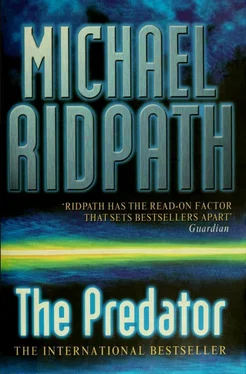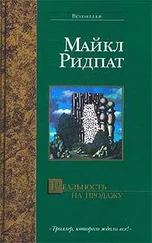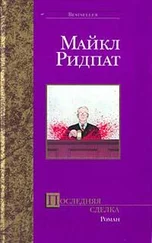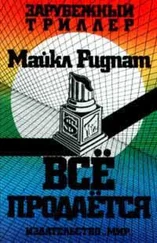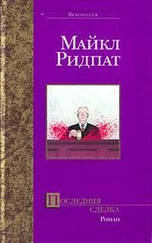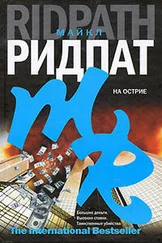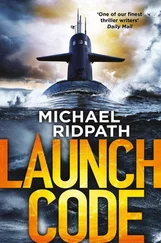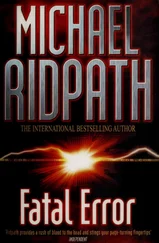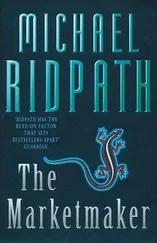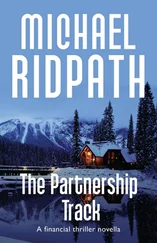‘Yes, we have, but with no luck.’ There was a pause. ‘Have you any other ideas for us, Mr Szczypiorski?’
Marcus and Alex was a can of worms that Chris didn’t want to open at that moment.
‘No. Nothing’
Karásek didn’t sound surprised. ‘OK. Thank you for keeping in contact. Goodbye.’
Chris put down the phone. Nowhere. They were getting nowhere. Chris wasn’t convinced by the identification. The more he thought about it, the more he suspected that the key to Lenka’s murder lay in London, or possibly New York, rather than the Ukrainian mafia in Prague.
He stared down at the papers in front of him. There was his portfolio, mocking him. If Amalgamated Veterans did want to withdraw their money, what would he liquidate?
It would be next to impossible to sell the Eureka Telecom position to Bloomfield Weiss now that he had pissed off Ian so comprehensively. He checked the prices with other brokers. They were all floating around the Bloomfield Weiss level, apart from Leipziger Gurney Kroheim who were making the bonds ninety-one to ninety-two. But he knew he’d never be able to offload the whole ten million with them. The truth was Bloomfield Weiss were the market in these bonds, and Bloomfield Weiss didn’t want to buy them.
So what else could he sell?
There were four other relatively small positions in junk bonds that Lenka had bought, plus a couple of better quality issuers like CEZ. All of them were good companies with good prospects. He considered his own large government bond position. This had moved against him following the wobble from Russia, but he was sure it would come back. Now was the wrong time to sell. It would be against all his principles to get rid of his good positions and be left with his bad one.
Then there was the problem of valuation. The fund was revalued once a month, and the February reval was the following day. Technically, he might be able to get away with a price of eighty-eight for the twenty-five million euro position. But he knew that the real price, the price at which he could actually sell the bonds, was more like seventy. That was a seven and a half million loss. Chris winced. The investors would not like that one bit.
But he would have to use that price. He knew what could happen if you didn’t disclose your losses immediately, and he didn’t want to find himself in a similar position again. Besides, allowing Rudy to sell out of the fund at a higher price would be unfair on the other investors who remained in. If Rudy was determined to sell, he would just have to take his loss and lump it. And Chris would have to pray that the fund survived the consequences.
Chris leaned back in his chair and exhaled. This was getting all too familiar. A big position spinning out of control, taking everything else down with it. He could tell himself that it wasn’t his fault of course, just like it hadn’t been his fault last time. But he should face reality. He couldn’t handle this kind of thing. Somehow, it always went wrong, and he could never figure out why.
Perhaps trading really was like chess. People assumed that the secret to chess was the ability to plan precisely several moves ahead, just as they assumed that good traders were those who could calculate precisely what was going to happen next in the markets. But both chess and trading were much more imprecise than that. Good chess players developed a feel for a position. They would plan many moves ahead to achieve a position that they felt was strong: an unassailable knight, a bishop attacking the opponent’s centre, a crushing pawn attack on the queen’s side. For them, chess was as much an art as a science.
Chris had been good at chess. His father had taught him young, and taught him well. He had never pushed him to work hard at it, but had shown a quiet satisfaction whenever Chris played well. Chris played for his school, he played for his club, he beat players several years older than himself. After his father died, he tried even harder, with some success. At eleven, he could beat the average adult club player. He won a junior county chess championship. People expected great things of him; everywhere he was compared to his father.
And then, when he reached thirteen or fourteen, things changed. As he played in higher circles, his opponents improved. He lost matches. Once he even lost to a precocious twelve-year-old. He became even more competitive, he spent hours reading chess books, perfecting his openings, trying to understand the deeper subtleties of strategy, but none of this seemed to help. He lost to better players, and he didn’t understand why. He came to realize that they had a better feel for a position than he did, that he could be pottering along quite happily through the game, while his opponent was consolidating a winning position that Chris hadn’t even recognized. If his father had still been around, he might have explained what was going on. But his father wasn’t around. It came to him that he was never going to be as good a player as his father. There would always be thousands of chess players better than him. The memory of his father’s quiet smile of satisfaction as he made a good move, a memory that had sustained him through so many games in the years since his father’s death, began to fade. It was no longer fun to play chess. He gave up.
He had done similarly well as a trader. For a few years, while he was trading so successfully at Bloomfield Weiss, he had thought he’d sussed it. He developed a feel for a good position and a bad one. He knew when to buy more of a good position, to have the courage to be a pig, as George Soros would say, and when to cut a bad one. The profits rolled in, until that disastrous summer when, thanks to Herbie Exler, he had dropped six hundred million. Eventually, with Lenka’s help, he had managed to tell himself that that really wasn’t his fault, that it wouldn’t happen again.
And now it was happening again. Sure, he wasn’t going to lose six hundred million dollars, but he could lose Carpathian’s reputation, and with it its investors. And that mattered.
Once again, none of this seemed to be his fault. But perhaps there was something he just couldn’t see, something about how to deal with the people he worked with, that meant that he found himself in these disastrous positions. Lenka could have helped him. But Lenka, like his father, wasn’t there.
As he sat at his desk, he felt the icy fingers of panic slowly grip at his chest. He was afraid. Not just afraid of losing money on the Eureka Telecom position, or even of losing Carpathian, but afraid of losing the shreds of his self-esteem that he had fought so hard to regain. The market was battering him, and he was hurting.
The phone rang. He picked it up.
‘Carpathian.’
‘Chris? It’s Megan.’
‘Oh, hi. How are you?’
‘I’m fine. What about you? You sound sort of tense. Or do you traders always answer the phone like that?’
‘I suppose we do,’ said Chris, although he was impressed and pleased that Megan had managed to pick up his mood. ‘But it’s true, I’m not having the world’s greatest day.’
‘Are the markets going against you?’ she asked.
‘You could say that,’ said Chris. ‘Never mind. How’s Cambridge?’
‘Great. They’ve given me some really nice rooms in college in a building that must be three hundred years old. And I’ve met my supervisor and found the library. I’m really quite excited by it all.’
‘That’s good.’
‘I was calling because I’ve booked a flight to Prague with Czech Airlines from Stansted Airport for Wednesday morning, coming back that night. I thought we could go together.’
‘That’s a good idea. Give me the details. By the way, I think Duncan will be coming with us.’
‘OK,’ said Megan, unenthusiastically.
Читать дальше
